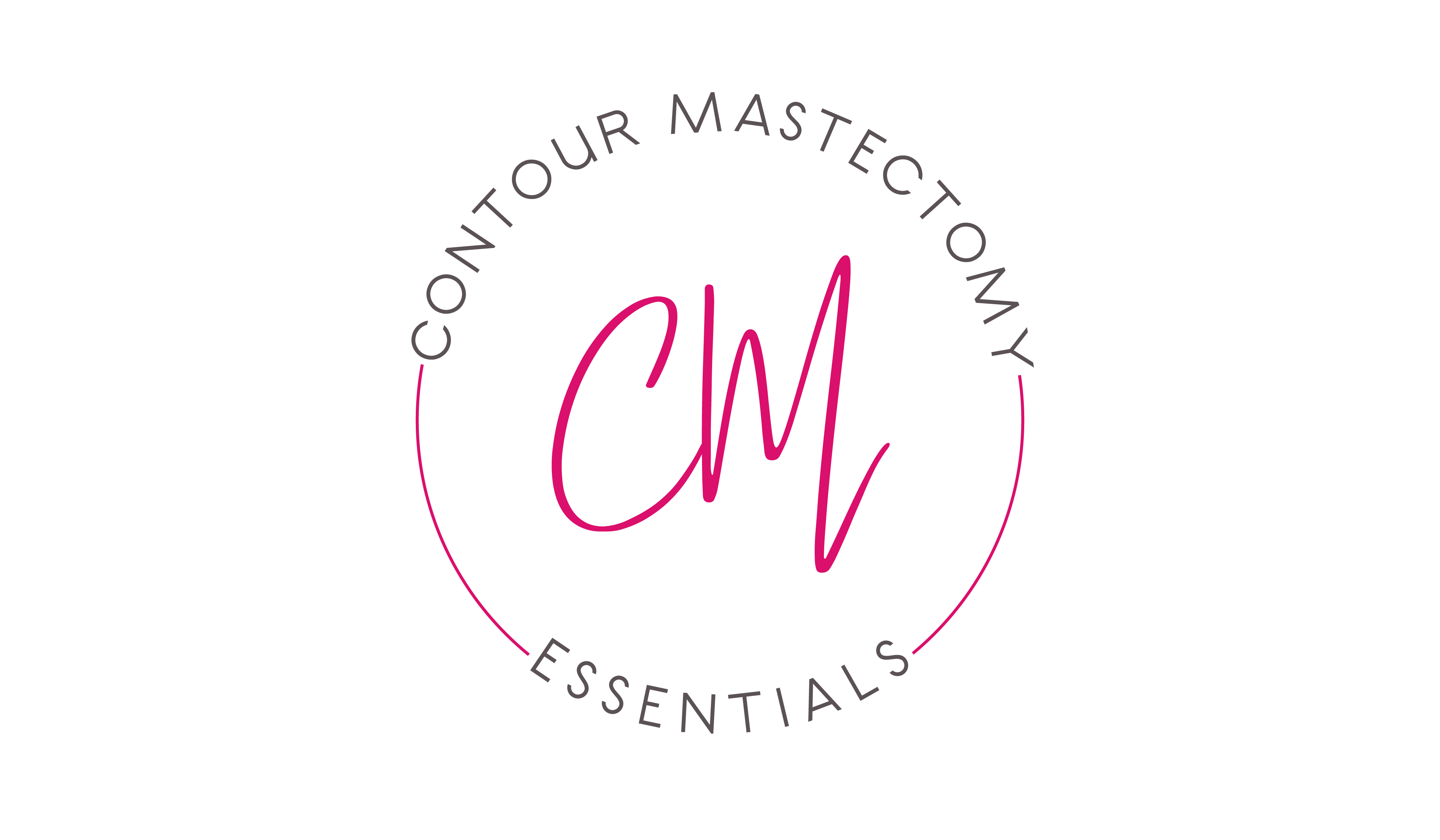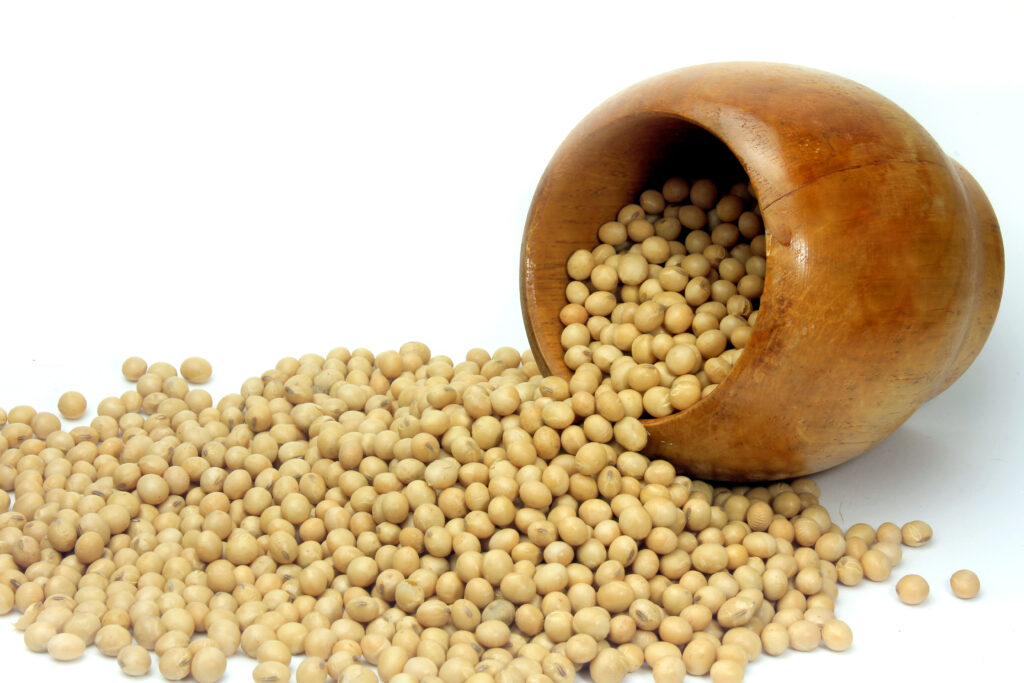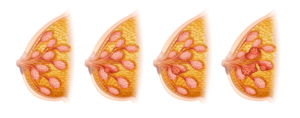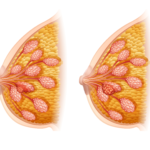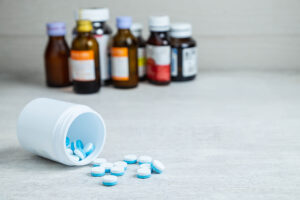Despite breast cancer incidence being lower in Asian countries where a high amount of soy is consumed, it is unclear whether a soy-rich diet is protective against breast cancer, and there is no evidence that soy increases risk.
Soybean is a legume that originated in Asia. It’s rich in isoflavones, compounds found in soy that can be protective. Researchers studying cells in the laboratory have found that individual isoflavones may stimulate breast cancer growth; studies observing people consuming soy foods over a long period show either a protective or neutral effect, which suggests moderate soy consumption is safe.
Despite concerns about soy products potentially increasing cancer risk, it’s important to debunk misinformation and ensure patients get the nutrients they need to stay healthy. Research consistently shows that soy is generally safe to eat, even for cancer patients, when consumed in moderate amounts.
Findings offer hope and optimism for women a year or more after diagnosis. Including moderate amounts of soy in their diet could lead to more remarkable overall survival and perhaps decreased recurrence.
Research is not limited to a specific region. Observational studies also link moderate soy consumption (one to two servings daily) with lower breast cancer risk in Asia. The fact that soy foods are commonly consumed throughout life in this region suggests that our findings have global relevance.
Theories On Why Soy Reduces Cancer Risk
Soy contains phytoestrogen, the plant form of the hormone estrogen. Because phytoestrogen and estrogen sound similar, there has been hesitation around eating phytoestrogen, especially among patients with breast cancer and other types of cancer that are hormone-sensitive. In some breast cancer treatments, estrogen is even blocked to prevent cancer cells from forming.
It’s important to note that phytoestrogens and estrogen are not the same. Consuming phytoestrogens does not interfere with the estrogen naturally present in your body, providing a reassuring distinction. Research suggests that incorporating soy products into your diet may reduce the risk of cancer, highlighting the potential health benefits of soy consumption and reinforcing the safety of this dietary choice.
For those concerned about the taste or preparation of soy products, there are many delicious and easy ways to incorporate soy into your diet. Soy intake is linked to a reduced risk of lung, prostate, and breast cancer, and consuming soy may reduce the risk of all types of new cancer diagnoses, providing a solid motivation for incorporating soy into your diet.
Why Concerns?
There used to be concern regarding eating isoflavones due to their estrogen-like activity in the body. However, isoflavones bind to estrogen receptors differently and function differently than estrogen. It is also important to note that the concern was based on findings of isoflavone consumption in rodent studies, not humans. The human body metabolizes isoflavone uniquely, distinct from rodents, and understanding this unique metabolism can provide a more precise understanding of the effects of isoflavones on human health, empowering you with knowledge about your own body.
Embrace the benefits of soy as an excellent alternative to animal protein in your daily diet. There’s no reason to avoid eating soy. It’s a positive and healthy choice that can enhance your overall well-being.
What is Soy
Soy comes from soybeans made from isoflavones, a plant estrogen type. It is structurally different from the estrogen in our bodies, and plant-based estrogen does not convert into the estrogen our bodies make when we eat it. So, plant-based estrogen doesn’t drive cancer growth the same way that our estrogen does.
Studies show that a lifelong diet rich in soy foods reduces the risk of breast cancer in women. This protective effect is less dramatic for women who eat less soy or who start eating soy later in life. Soy contains protein, isoflavones, and fiber, all providing health benefits.
It’s important to reiterate that the once-held belief that soy foods increase the risk of breast cancer has been debunked. Consuming a moderate amount of soy foods, such as tofu, soy milk, and edamame, does not increase the risk of breast cancer or other types of cancer. A moderate amount is one to two servings a day of whole-soy foods.
So, where did the idea come from that soy increases breast cancer risk? Isoflavones, which are found in soy, are plant estrogens. High levels of estrogen have been linked to an increased risk of breast cancer. However, food sources of soy don’t contain high enough levels of isoflavones to increase the risk of breast cancer.
For women with a family history of breast cancer, the potential benefits of soy consumption may outweigh the possible risks. Soy or isoflavone supplements, on the other hand, generally contain higher levels of isoflavones. Some studies have suggested a link between soy or isoflavone supplements and an increased risk of breast cancer in women who have a family or personal history of breast cancer or thyroid problems.
If you are considering taking soy or isoflavone supplements, it’s always best to consult your doctor or dietitian first. They can provide personalized advice based on your health, history, and needs.
Soy and Breast Cancer
Several prominent human studies—in which thousands of women have been followed for many years—consistently show that compared with women who do not eat soy, women who regularly eat soy have lower breast cancer risk. Some of these studies also suggest that breast cancer survivors who consume soy foods have a lower risk of breast cancer recurrence compared with survivors who avoid soy. These studies have been conducted in both Asian and US populations. This is important because while soy has long been a part of many Asian cuisines, it is a relatively new addition to the American diet.
The studies were observational. This means researchers collect diet information from women and follow them for many years to see who gets breast cancer. In an observational study, it is always possible that the connection with better breast health is not soy but something related to eating soy. For example, women who consume soy may also eat less fried food and more vegetables, exercise more, and maintain a healthier body weight. Any one of these other things could explain why soy-eating women have lower breast cancer risk. This means observational studies can’t prove that soy protects against breast cancer. However, these studies are reassuring in affirming that soy foods do not increase breast cancer risk. They point toward a protective effect of soy on breast health, regardless of other lifestyle and diet choices.
If you’re a woman concerned about breast health and like soy, stick to healthy, whole soy foods, such as tofu, tempeh, soymilk, and edamame. The occasional soy protein bar or snack food is fine, but as with all plant foods, less processing is better.
Concerns consuming soy foods contain a natural plant compound called isoflavone. Research on isoflavone shows that eating traditional soy foods may:
- Prevent the growth of tumors (tumor suppressant)
- Induce apoptosis (death of unhealthy cells)
- Aid in DNA repair
Population studies do not link consuming soy with any cancer. Evidence continues to grow, showing that eating traditional soy foods may lower the risk of breast, prostate, and endometrial cancer.
Soy Consumption
One or two servings of soy are recommended a day. A serving could be a half cup of edamame, one cup of soy milk, or a quarter cup of tofu. Some cancer medications may interfere with soy; therefore, balance is critical in incorporating it into your diet. Guidance and support will be invaluable in your health journey, especially if you are on active treatment.
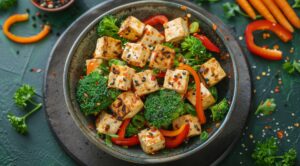
Theories Why Soy May Reduce Cancer Risk
Soy May Reduce Breast Cancer Recurrence
Some possibilities researchers are exploring how soy can reduce the risk of breast and other cancers.
Isoflavones
Isoflavones may be particularly helpful in decreasing cancer risk and preventing cancer recurrence. This may be because isoflavones reduce inflammation and oxidative stress.
In addition to possibly reducing cancer risk, isoflavones may have other benefits, including bone health. Evidence suggests that soy isoflavones may help reduce bone loss and improve bone health in menopausal women.
Fiber
Whole soy foods like soybeans, soy nuts, and edamame contain fiber, which has many health benefits, including supporting digestion and stabilizing blood sugar levels. Experts recommend that women consume 25 grams of fiber daily and men consume 38 grams daily.
Fiber may also reduce cancer risk and lower colorectal cancer risk.
Phytochemicals
As a plant-based food, soy products are also a good source of phytochemicals. These phytochemicals may offer benefits like boosting your immune system and lowering inflammation.
Choose Whole Soy Foods
The healthiest soy products are whole soy foods. These options are minimally processed and contain more plant-based protein. Examples of whole soy foods include:
- Edamame
- Unsweetened soy milk
- Tofu
A healthy diet can include two servings of soy foods daily depending on your dietary needs. This might mean half a cup of edamame and an eight-ounce cup of soy milk.
Soy-based protein bars and powders are often made using processed soy protein isolate. While processed soy products can be a helpful way to add plant-based protein to your diet, it is always best to get nutrients from natural foods whenever possible. Your care team can help determine how much protein you need to reach your health goals.
Research also suggests that eating soy foods may reduce the risk of cancer recurrence – even in patients with estrogen receptor-positive cancer.
Soy is a potential ally in the fight against cancer, instilling hope and optimism in those with a BRCA mutation, the genes responsible for DNA repair. The potential benefits of soy are particularly intriguing. Isoflavones, a type of phytoestrogen found in soy, can potentially restore tumor suppression in BRCA1 and BRCA2 genes.
Be Cautious About Soy Supplements
The Food and Drug Administration does not regulate supplements and should be used cautiously. Please consult your provider before using any supplement, as they may interfere with your medications.
Supplements may contain high doses of concentrated sources of soy. These include soy powders, soy protein powders, and isoflavone supplements. Genistein and daidzein are specific types of soy isoflavones that are often sold as dietary supplements.
Researchers studied the effect of soy supplementation in patients with breast cancer and found that supplementation did not decrease mammographic density, a potent breast cancer risk factor. There is still little data to support the use of supplements of isolated soy phytochemicals for reducing cancer risk.
Soy foods are a healthy option, while soy dietary supplements may not be. The soy and breast health research has examined soy foods, not nutritional supplements. If you require extra calories from a medical food supplement during cancer treatment, the soy protein in this product is not a problem. However, soy pills and isoflavone-enriched powders should be avoided.
SUMMARY
The current consensus among health experts who study soy is that breast cancer survivors can safely eat these foods. Emerging research suggests that soy foods may decrease the likelihood of breast cancer recurrence in women with a history of the disease.
Most health experts agree that the evidence is not strong enough to recommend that all women with a history of breast cancer eat more soy. However, soy foods do appear to be safe and possibly beneficial for female breast cancer survivors.
Evidence does not point to any dangers from eating soy in people, and the health benefits appear to outweigh any potential risks. There is growing evidence that eating traditional soy foods such as tofu, tempeh, edamame, miso, and soymilk may lower the risk of breast cancer, especially among Asian women. Soy foods are excellent protein sources, especially when they replace other, less healthy foods such as animal fats and red or processed meats. Soy foods have been linked to lower rates of heart disease and may even help lower cholesterol.
If you have questions about your diet during cancer treatment, speak to your care team and dietitian to make the best decisions. There’s no reason to avoid eating soy.
REFERENCES
American Cancer Society
Healthline
John Hopkins Medicine
Mayo Clinic
MD Anderson Center
Medical News Today
Memorial Sloan Kettering Cancer Center
Oncology Nutrition
